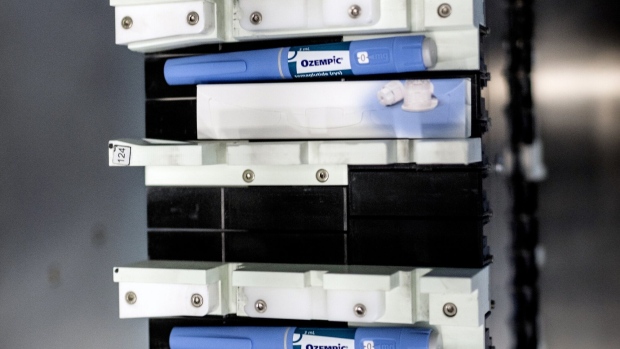Feb 20, 2024
Ozempic Boom Leaves Room for Dialysis, Fresenius Medical Says
, Bloomberg News

(Bloomberg) -- The kidney-dialysis market will be resilient even as obesity drugs gain in popularity since patients taking the appetite-suppressing therapies may live longer, according to Fresenius Medical Care AG.
The selloff in October of dialysis providers like Fresenius Medical Care was overdone after Novo Nordisk A/S released surprisingly upbeat data on Ozempic’s efficacy in a kidney-failure study, FMC Chief Executive Officer Helen Giza said in an interview Tuesday.
Currently, a large number of patients with chronic kidney disease die from cardiovascular events before they even reach the point of starting with dialysis, Giza said. Obesity drugs may allow more chronic kidney disease patients to survive to the point where they need dialysis, she added.
It’s still early going with obesity medicines, and the full impact of the drugs on the dialysis sector could take a decade to play out, Giza said. On the one hand, obesity drugs could slow down the progression of chronic kidney disease, reducing the number of new patients who need dialysis.
Yet there are reasons to believe that the overall effect of obesity medicines on the dialysis space will be neutral going forward, Giza argued.
For one thing, obesity medicines are currently expensive and hard to access. And there are questions about their side effects, especially when it comes to patients who are already taking other medicines regularly.
“Our patients are about the sickest of the sick,” Giza said. “They have 10 or 12 other co-morbidities. So they are taking an arsenal of different drugs.”
Plus, there’s a growing sense that people will need to take obesity drugs for many years — potentially forever — to keep the positive impacts. That’s not something that kidney-dialysis patients have a track record of doing.
“Historically, our patients are terrible at sticking to taking medications, even with the ones that they may have to take for 30 days or 60 days,” Giza said.
Currently, about 5% of Fresenius’s dialysis patients are taking an obesity drug like Ozempic, Giza said on a call with journalists. That’s reminiscent of the rather slow uptake of the oral type-2 diabetes medicines known as SGLT-2 inhibitors, Giza said. While those drugs have been on the market for about a decade, only about 8% of the eligible patients that Fresenius serves with dialysis patients are using them, Giza said.
©2024 Bloomberg L.P.


